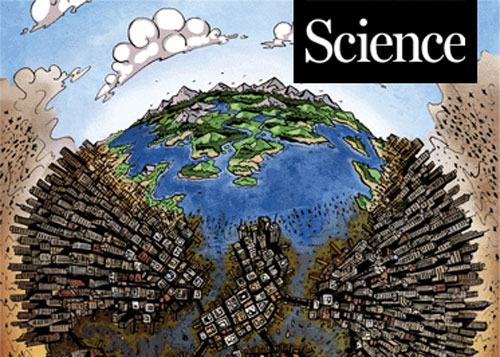American economist Kenneth Boulding famously quipped, “Anyone who believes that exponential growth can go on forever in a finite world is either a madman or an economist” (1). He was giving evidence to the U.S. Congress in 1973, in the wake of the Club of Rome’s first, enormously influential and provocative report, The Limits to Growth (2). The remark has survived to this day as a somewhat satirical comment on the economics profession, but it also has a certain internal logic and provides a useful starting point for thinking about the “decoupling wars” that tend to be fought around the compatibility between economic growth and environmental limits (3).
When economists contend that growth can continue indefinitely, it is because in their view, growth is something measured in terms of economic value rather than material throughput. The preferred measure of output for economists—the gross domestic product (GDP)—is denominated in monetary value rather than in material weight. These things, they argue, are separable: By decoupling one from the other, economies ought to be able to escape the dominion of finite limits at least to any relevant degree (if not literally forever) (4).
…
Further Reading
- Jackson, T 2017. Prosperity without Growth—Foundations for the Economy of Tomorrow, (Chapter 5). London: Routledge.
- Jackson T and P A Victor 2019: LowGrow SFC: a stock-flow-consistent ecological macroeconomic model for Canada. CUSP Working Paper No 16. Guildford: University of Surrey.
- Jackson, T 2018: The Post-Growth Challenge: Secular Stagnation, Inequality and the Limits to Growth. CUSP Working Paper No 12. Guildford: University of Surrey.







